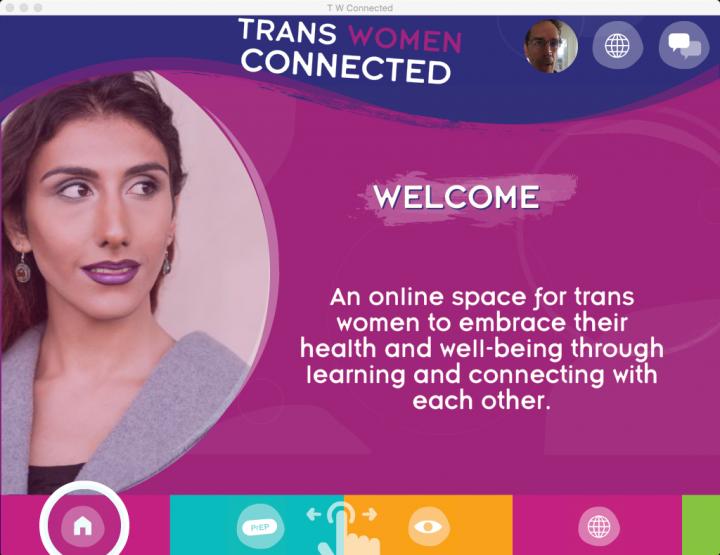
Credit: Courtesy of Bob Smolenski
Two Portland State University researchers have received federal funding to help develop a mobile app aimed at reducing HIV among transgender women, a group whose HIV rates are much higher than other high-risk groups.
Charles Klein, an associate professor of anthropology in PSU’s College of Liberal Arts and Sciences, and Christina Sun, an assistant professor of community health and health promotion in the OHSU-PSU School of Public Health, are working with dfusion, a California-based health tech startup that designs apps to improve health outcomes.
Dfusion received a $1.4 million Small Business Innovation Research grant through the National Institute on Minority Health and Health Disparities; PSU’s subaward is around $280,000. This is the second phase of the project and will be led by Tamara Kuhn, research scientist and dfusion’s vice president.
The app, called Trans Women Connected, is meant to offer effective HIV and sexual health messaging specifically tailored to transgender women. Klein said transgender women face challenges such as transphobia, employment discrimination and expensive gender affirmation procedures that can create financial hardships increasing the likelihood that they will engage in sex work, or they may forgo condoms with partners as a way to affirm their gender identity. The app fills a need for HIV prevention interventions that can address the community’s specific needs, Klein said.
Social support has been shown to be a protective factor against sexual health risk in transgender women. The app will also allow transgender women to build a peer network, where they can offer support to one another, recommend trans-friendly health providers, and find social acceptance.
Klein, whose research areas include applied medical anthropology, will help develop content and come up with activities that build on the science of interventions and his experience working with transgender communities.
“It’s a way to engage and help transgender women think about things, connect and pass on services,” Klein said. “It’s not just about HIV; it’s about a healthy lifestyle, sex and relationships, and how do we support and deal with that. Let’s meet people where they are and in the words and technology they use to see if that can be successful.”
Sun, whose research is focused on HIV prevention and reducing LGBTQ+ heath disparities, said one of the key aspects of the project is that it focuses on the strengths of the community.
“We are focusing on the resourcefulness and resilience that transgender women possess despite their difficult life situations,” she said. “Another strength is our partnership with transgender women throughout the entire process.”
The team expects development of the app to take about a year, followed by a rigorous randomized controlled trial to test its effectiveness.
###
For a copy of the paper during embargo, please contact +1-202-326-6440 or [email protected].
Title: Wearable thermoelectrics for personalized thermoregulation
Manuscript Number: sciadv.aaw0536
Media Contact
Cristina Rojas
[email protected]
Original Source
https:/




